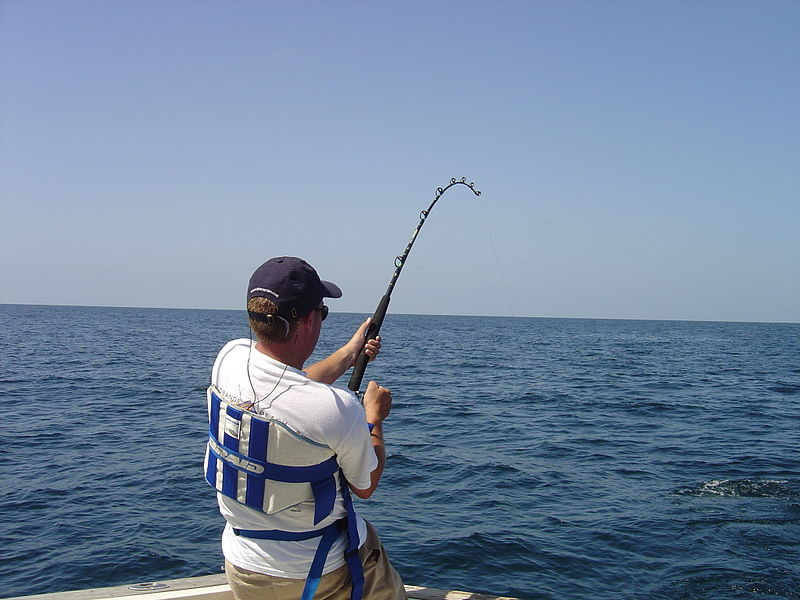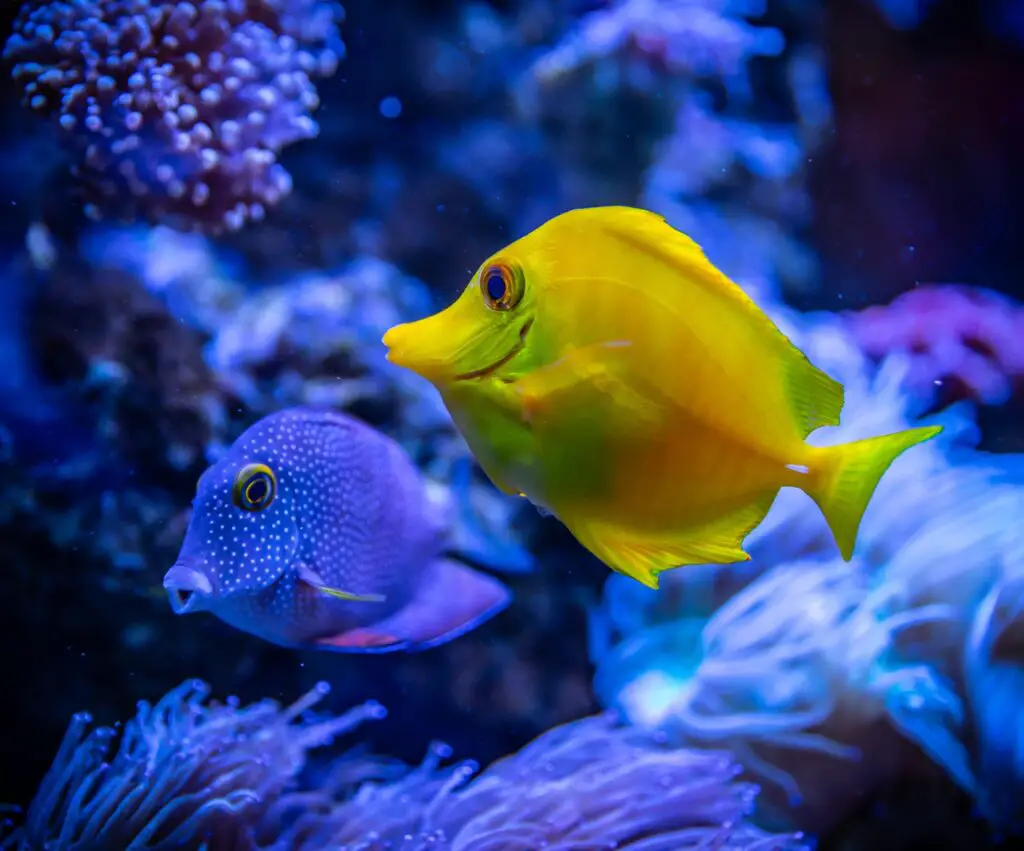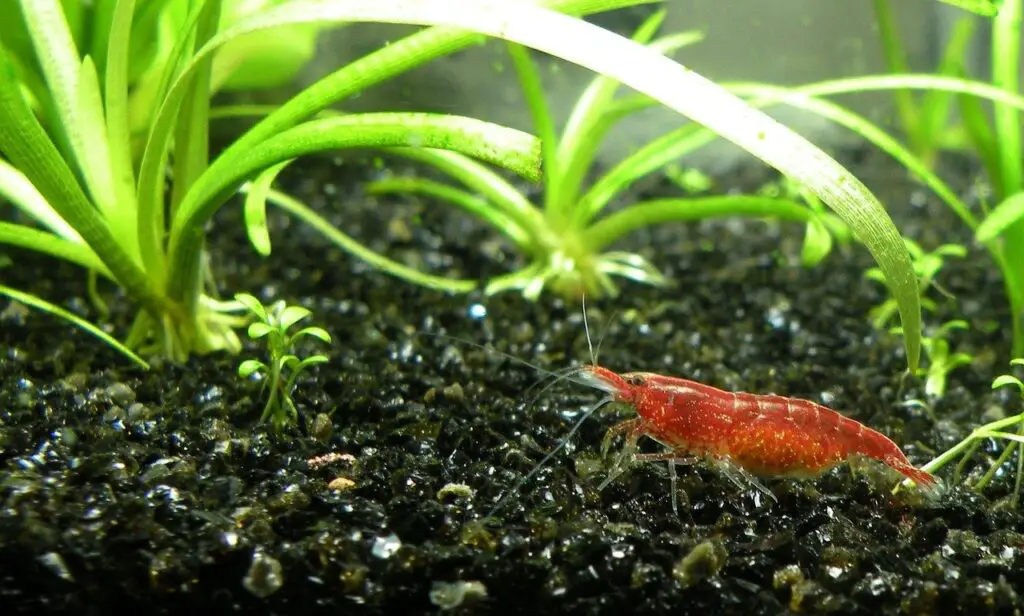Fishing is a popular activity enjoyed by people all over the world, but the question of whether fishing hooks cause fish pain still remains widely misunderstood by many people. Does fishing hurt fish?
Fish have tissues around their mouths that are damaged when a hook pierces them. These wounds cause the release of chemical signals from nerve endings that create the sense of pain.
Without a doubt, fish are physically and emotionally hurt by fishing, despite the fact that fish are often treated as completely insentient beings; however, just like us, they have nerve endings that send pain signals to their body, resulting in the sensation of pain.
There’s a lot of confusion on this topic, and the rest of this article will dive through the research to answer the question of whether fish feel pain.
Do Hooks Hurt Fish?
Hooks are sharp metal objects designed to penetrate the mouth of a fish so that it cannot escape. By that distinction alone, you should recognize two fundamental things. First, that the act of catching a fish causes a severe reaction of distress.
Second, that the hook is, at minimum, causing a lot of damage to the tissues surrounding the mouth. Injuries can also occur to other parts of the mouth, including the gills and eyes, especially if the hook gets lodged deeper in the throat or if the fish thrashes to an extreme degree.
It doesn’t exactly take a biologist to see that the fish is exhibiting a reaction of both fear and discomfort simply by its reaction to the hook, and contrary to what anglers will tell you, this reaction is not just in response to a different stimulus.
Fish have both the capacity and the emotional intelligence to feel fear in response to being hooked.
Do Fish Feel Pain when They Are Caught?
The question of whether fish feel pain is something that takes a lot of scientific insight. First, it’s important to note that for the common man, the reaction to a painful stimulus exhibited by a creature is often the measure of how much pain that creature experiences.
For example, it’s profoundly simple to understand a dog’s reaction to stepping on their paw by accident. They yelp and scream, holding their injured paw up.
A fish is capable of no such indicative response to pain, which is likely why so many people dismiss the question of whether fish feel pain out of hand.
There is an age-old argument that fish don’t experience the same kind of pain we do. The argument goes that, yes, fish feel the sensation of pain, but they don’t interpret it in the unpleasant way we do.
This conclusion was drawn on the basis of several experiments performed on Rainbow Trout fish which established as a baseline that fish respond to painful stimuli.
In this case, the fish reacted to bee venom being injected in the mouth by rubbing its nose into the gravel and shaking its body. The sensation of pain in this way is called nociception, but the biggest lie spread about fish not feeling pain is that the nociceptors do not create the same electrical activity in the brain that we call ‘pain.’
Briefly speaking, these arguments have been debunked by a portfolio of evidence supporting the concept that fish feel pain, and real pain at that. The claim that fish ‘don’t have the right brain’ just doesn’t hold water.
The receptor cells, specialized transmitters, and neuronal pathways in the pain system are much the same in fish as they are with mammals, and several studies demonstrate that the electrical activity in the mid and forebrain of a fish mirrors that of mammals.
Beyond the physical pain, fish also are capable of feeling discomfort, distress, and terror. If you set aside your biases, this distressed behavior is clearly visible any time a fish is on a hook.
Last, but not least, due to the way a fish’s gills work by diffusion, the gill structure will collapse when exposed to the air, causing the fish to suffocate if exposed to the air for too long.
Is There a Way to Fish without Hurting the Fish?
There are several ways to fish without hurting the fish physically, including netting the fish, fly fishing with barbless hooks, or gar fishing with a baited nylon rope.
If your moral compass is telling you that fishing is cruel, then these options might not sit too well with you either. Long, drawn out struggles to catch a fish can lower its chance of survival by exhausting it, making it easy prey. In addition, you are still causing the fish distress by catching it.
Do Fish Heal after Being Hooked?
Most fish will heal after being hooked. Their survival rate does depend on the severity of the injuries, whether there’s any infection, and how much bleeding has occurred.
If the eyes, gills, or internal organs are damaged, the fish may not survive. Catch and release kills somewhere between 5-30% of fish, with delicate fish like trout and salmon falling towards the higher end of the mortality rate.
Of course, if you leave the hook in a fish’s mouth, it is much more likely to kill them.
Is Fishing Cruel?
The question of whether fishing is cruel can be very difficult to answer and depends on several factors. Many peoples in the past believed that hunting was ethical, so long as all of the animal was used for the betterment of society.
Somewhere in that longstanding belief is the argument that fishing is ethical if you plan to cook and eat what you have caught.
On the other hand, the concept of traumatizing an animal, removing it from its habitat, taking a few selfies with it, and sending it back to its natural environment with a gaping wound is a much more difficult moral position to defend.
Final Thoughts
It is clear from an abundance of research that fish do feel pain and respond to it much like we would. At the very least, hooks hurt fish by leaving a physical wound and causing them immense distress.



